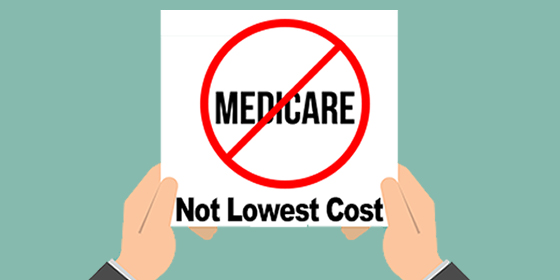National Health Insurance? Medicare for All? Not-So-Fast

As the new Congress is seated in January 2019, there are those who already are pushing the “Medicare For All” call. The argument being put forward is that less money will come out of taxpayers’ pockets to pay for their healthcare, that turning from an already heavily regulated healthcare market to far more government control would slash administrative costs. This is just plain false.
It all comes down to “playing” with the numbers. Administrative costs as a fraction of total costs (the typical measure used) is highly misleading when comparing Medicare to other healthcare insurance plans, as many of the real Medicare overhead expenses are born by other programs. Medicare’s reported administrative cost per beneficiary has consistently exceeded that for private health plans. The reason for this “mismeasurement” is that many of the administrative costs of Medicare are not counted in comparisons because they show up in other agencies’ budgets. Social Security administers the collection of Medicare premiums. The IRS collects the taxes. Health and Human Services pays for the building and marketing costs as well as accounting and related concerns. If these costs were attributed correctly, Medicare’s administrative costs would be double. Non-medical administrative costs are primarily a function of the number of beneficiaries, not the cost of their care. Remember, Medicare patients are far older and less healthy and more than twice as costly, on the average, than younger people in private health plans. So, going forward, when the mantra will be repeated time and time again that Medicare is less costly to run than private health plans, keep in mind that it is not. Those pushing for Medicare for all rely on the presumption that it will generate huge administrative savings. What it will generate, really, is another tax burden on the tax payer. How Medicare for all would affect physicians is the topic of the next blog.



Comments
There are 1 comments for this article
The real way to figure out if Medicare is less expensive than insurance is to look at out of pocket costs. If your taxes go up less than you pay for equivalent insurance then Medicare is less expensive. The fact that Medicare gets to use other governmental agencies to do part of its work is probably what is lowering the total cost. On the other side. What if everyone who walked into your office had Medicare. How much would that simplify your office?